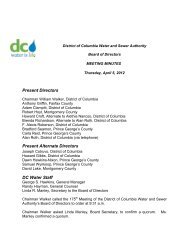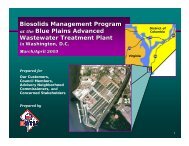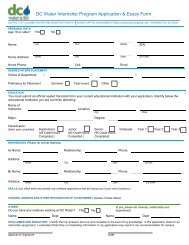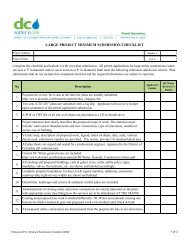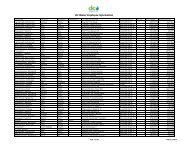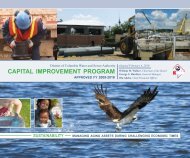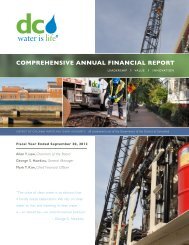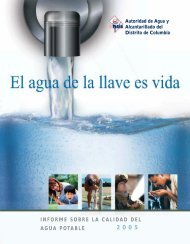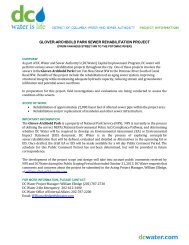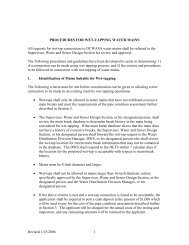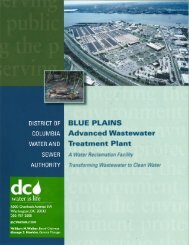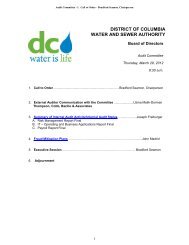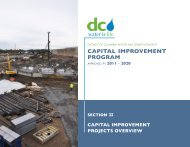2008 Annual Report - DC Water
2008 Annual Report - DC Water
2008 Annual Report - DC Water
You also want an ePaper? Increase the reach of your titles
YUMPU automatically turns print PDFs into web optimized ePapers that Google loves.
Ensuring well-informed<br />
customers and consumers<br />
Employees in departments throughout the utility are credited<br />
for the progress made over the year in educating the public<br />
on customer services, drinking water quality, rates, water and<br />
sewer system improvements and environmental programs.<br />
Well over 60 meetings with business, civic and<br />
neighborhood groups were held during the year covering<br />
various topics including rates, water/sewer construction<br />
activities, water pollution control programs, drinking water<br />
quality and the lead service replacement program. In<br />
addition, more than 35 presentations and guided tours of<br />
Blue Plains and other plant facilities were offered during the<br />
year to foreign delegations, industry professionals, media<br />
representatives, schools and environmental groups.<br />
<strong>DC</strong> WASA enhanced and expanded its website, www.<br />
dcwasa.com, with content updates, alerts, work zone<br />
activity, press releases and additional pages, features and<br />
customer service options. This year, an interim step in a<br />
planned re-design included a dynamic homepage with<br />
revolving headline stories.<br />
More than 250 members of the community attended For a<br />
Better Home…For a Better Community, a Latino event,<br />
hosted by <strong>DC</strong> WASA and the Mayor’s Office on Latino<br />
Affairs at the Sacred Heart School in the Columbia Heights<br />
neighborhood. Sixteen organizations participated.<br />
In FY <strong>2008</strong>, <strong>DC</strong> WASA provided lessons in Sewer Science to<br />
more than 300 District school students. The Sewer Science<br />
program uses an interactive mini-wastewater treatment plant<br />
model to teach the processes involved in treating wastewater<br />
and how it is recycled back into local rivers. <strong>DC</strong> WASA<br />
volunteers visit schools and conduct the classes.<br />
dcwasa essential to Life. 14<br />
<strong>2008</strong> a n n u a l re p o r t



